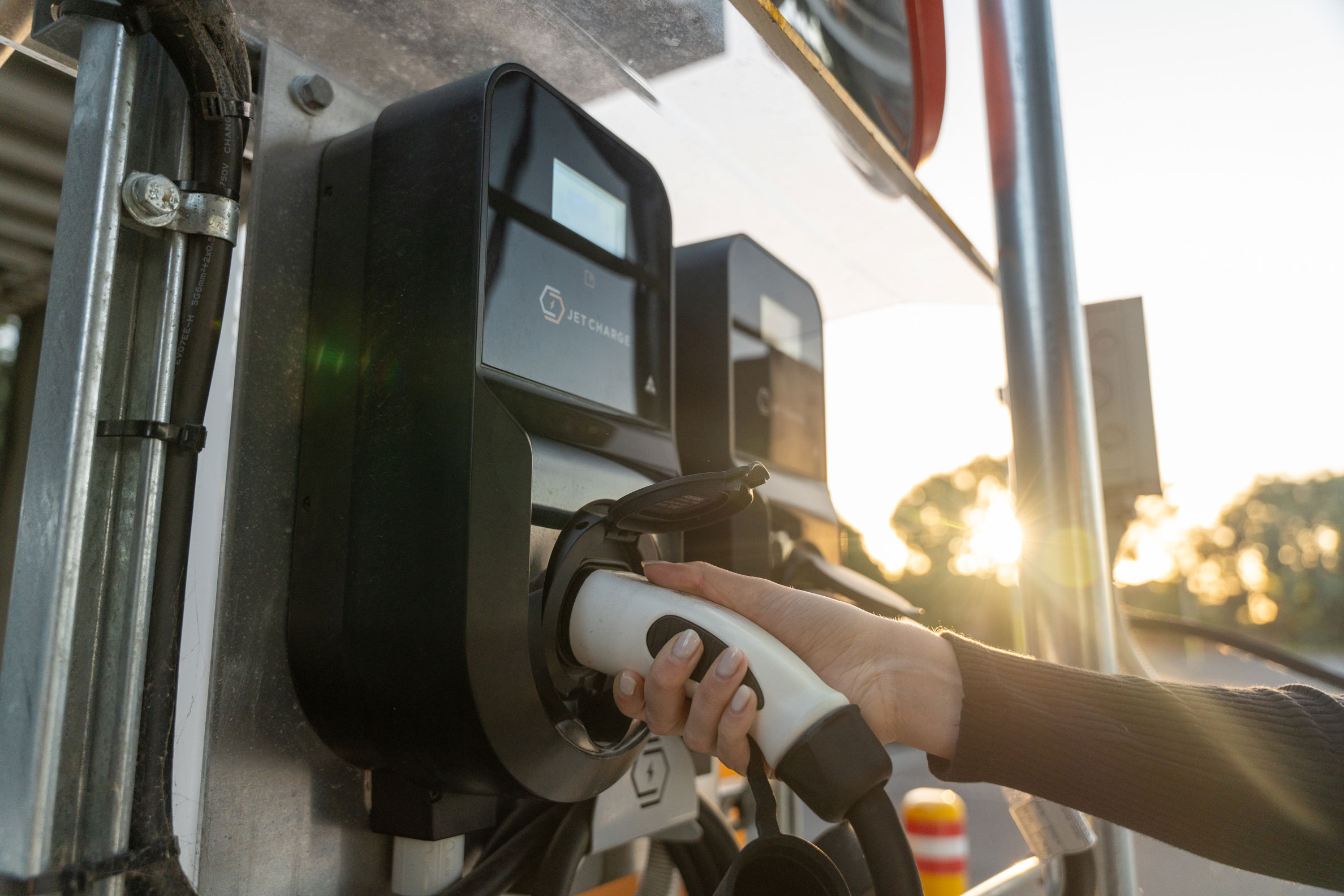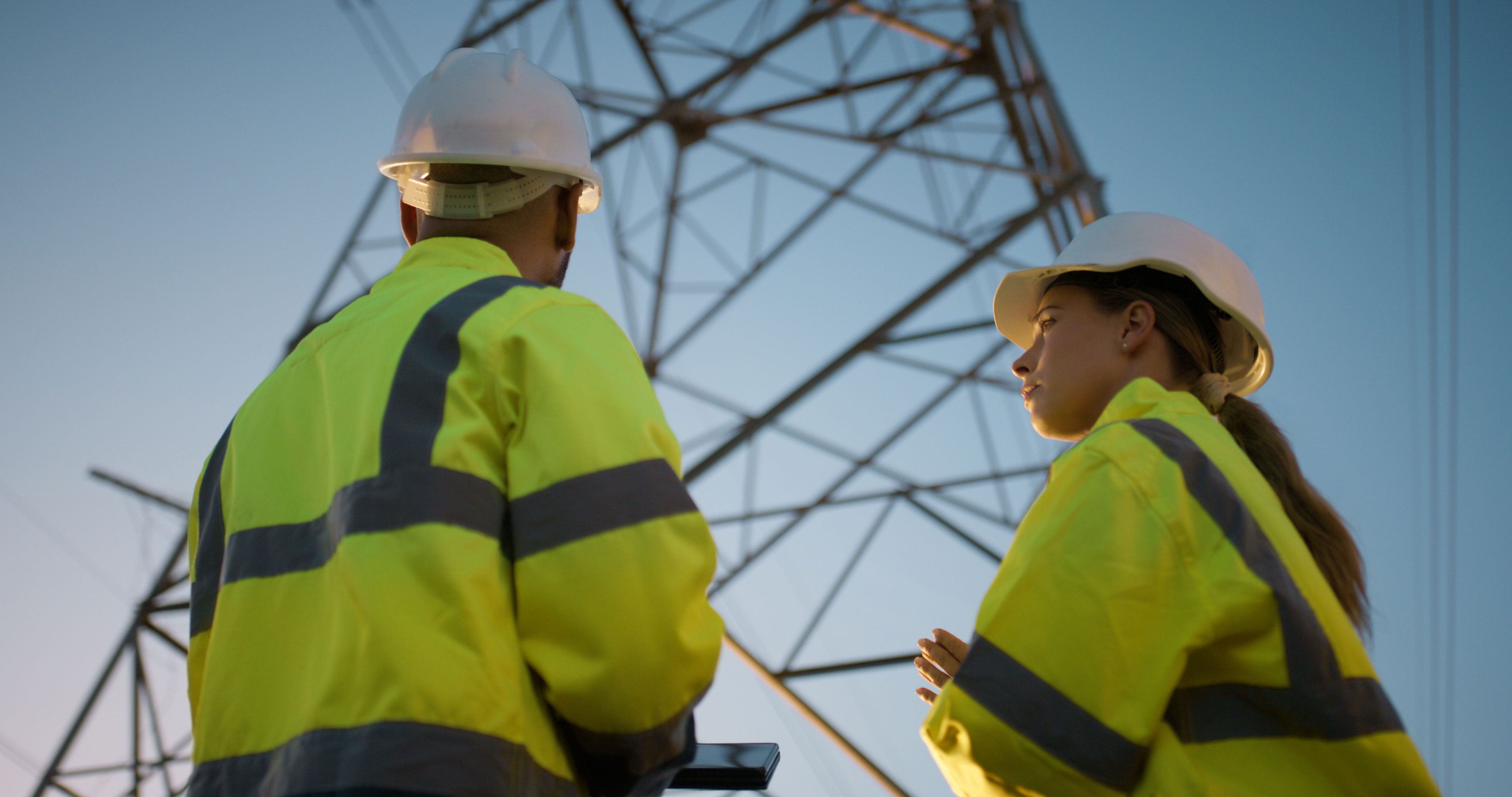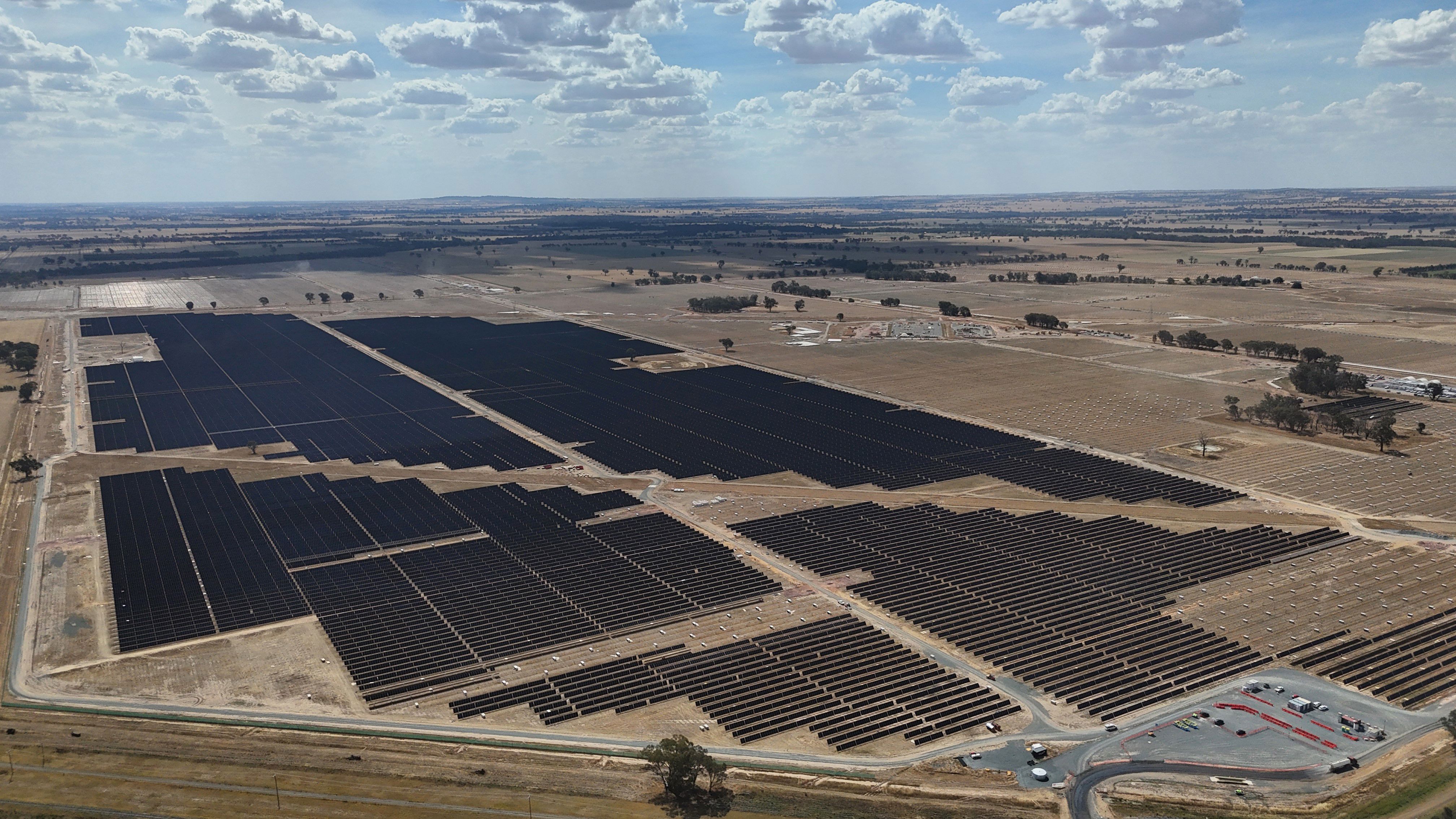CEFC drives down transport emissions with Ampol

2 August 2024
A $100 million CEFC investment to help decarbonise the emissions-intensive transport sector will harness the infrastructure, expertise, workforce and supply chain networks of leading industry player Ampol to tackle what is forecast to be Australia’s largest source of greenhouse gas emissions by 2030.
CEFC capital will be available to finance a range of clean energy technology measures at Ampol service stations across the country to accelerate the decarbonisation of its operations, kickstart its biofuel development and drive down national transport emissions.
Potential initiatives include the roll out of electric vehicle (EV) charging and green hydrogen refuelling infrastructure, the installation of solar PV, and the development of alternative energy sources such as biofuels and sustainable aviation fuel (SAF).
Established industry players have a significant role to play in the transition to cleaner alternative fuels. After more than a century moving motorists and goods around the country, Ampol is well positioned to help Australia forge a new transport network powered by renewable energy and fit for the future.Ian LearmonthCEFC CEO
CEFC CEO Ian Learmonth said: “As Australia works to electrify the economy in pursuit of net zero emissions by 2050, the CEFC has stepped up its focus on those sectors like transport, where electrification is more challenging.
“Established industry players have a significant role to play in the transition to cleaner alternative fuels. After more than a century moving motorists and goods around the country, Ampol is well positioned to help Australia forge a new transport network powered by renewable energy and fit for the future.
“By harnessing Ampol’s extensive critical infrastructure, including service stations, liquid fuel storage and distribution, as well as its supply chain connections to the marine, agriculture, mining and aviation sectors, this investment will demonstrate how fuel companies can be a part of the solution to the transport emissions challenge.”
The transport sector is the fastest growing and third largest source of greenhouse gas emissions in Australia, responsible for some 23 per cent of national emissions.1 Last year, the Australian Government forecast that it will be our largest source of emissions by 2030 without further action.2
Decarbonising transport involves more than just private passenger transport, with ClimateWorks estimating that freight makes up about 40 per cent of sector emissions3. In addition, the sector is predicted to grow 26 per cent to 2050, due to increased economic activity driven by population growth and consumer demand.4
Matt Halliday, Ampol Managing Director and CEO said: “Ampol is proud to be working with the CEFC to deliver solutions that will support the energy transition of our customers. Ampol’s rich history is cemented in supporting Australia’s diverse transport network and we are committed to working with the Government, our partners and our customers to invest in solutions for the energy transition that lies ahead for us all.”
The number of EVs in Australia more than doubled in 2023 year-on-year5 and made up about eight per cent of new car sales in May 20246. There are now more than 180,000 EVs on Australian roads but just 812 charging stations across the country at the end of 2023.7 According to the IEA, Australia had one of the lowest amounts of public charging capacity per electric light-duty vehicle in 2023, with 68 vehicles per charging point. This compared with Germany which had 25 vehicles per charging point, France with 14 and China with 8. 8
CEFC Executive Director Alternative Fuels Rupert Maloney said: “CEFC capital is important to help overcome challenges in those sectors like transport that are proving difficult to abate. We are pleased to provide the flexible finance that will enable Ampol to make the longer-term investment decisions to progress its Future Energy and Decarbonisation Strategies.
“By developing solutions to help its customers drive down emissions, Ampol is stepping up to the challenge of decarbonising the Australian transport sector and helping drive down national emissions.”
1Australian Government - DCCEEW: Quarterly update of Australia’s National Greenhouse Gas Inventory: December 2023
2Australian Government - DCCEEW: Australia’s emissions projections 2023 (published Nov 2023)
3Delivering freight decarbonisation: Strategies for reducing Australia’s transport emissions, ClimateWorks October 2023
4Australian Government BITRE Australian aggregate freight forecasts update 2022
5Australian Electric Vehicle Industry Recap 2023, Electric Vehicle Council March 2024
6Federal Chamber of Automotive Industries, June 2024
7Australian Electric Vehicle Industry Recap 2023, Electric Vehicle Council March 2024
8 Global EV Outlook 2024, IEA, p.73.




